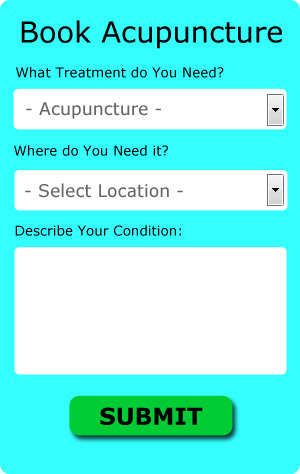Acupuncture UK: If you have been undergoing traditional medical treatments and they've failed to give you a solution to your medical problem, it might be a good idea to try one of the alternative treatments for instance acupressure or acupuncture. Bear in mind that any kind of treatment will depend on what problem you are battling with, acupuncture can be effective for a wide variety of ailments, pains and aches. While some people undergo regular acupuncture treatments in UK so that they can maintain health and well being, others try acupuncture to alleviate certain medical problems.
Patients of any age, even toddlers and babies can be given acupuncture therapies and the discipline is very popular to manage conditions like postoperative pain, anxiety, neck pain, headaches, sleeping disorders and arthritis. If you are in search of an acupuncturist in UK, UK it is wise to ensure that they're registered members of the British Acupuncture Council (BAcC).
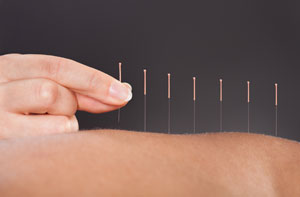
What is Acupuncture?: The old Chinese treatment method known as acupuncture, whereby fine needles are inserted into the person's skin to obtain beneficial effects, has been practiced for hundreds of years. A skilled and experienced acupuncturist may help to soothe conditions involving lower back pain, migraine headaches and osteoarthritis to mention merely a few of the commonest issues. Alongside stuff like bonesetter (die-da), massage (tui na), herbal medicine, gua sha, cupping therapy, exercise (qigong) and dietary therapy, acupuncture is practiced all over the world and is a pseudoscience and alternative medicine which represents a key feature of TCM (Traditional Chinese Medicine).
Acupuncture has been practiced for over three thousand years and was developed as a procedure for opening up your energy channels to release the flow of life force, or Qi (pronounced chee) which circulates around the human body. Focused on the stimulation of the nerve endings that are situated just beneath the skin, modern medical acupuncture treatment improves the secretion of endorphins (produced by the central nervous system) to numb pain and irritation around the entire body. The beneficial effects of acupuncture therapies have been investigated and recognized for a wide range of medical problems. The treatment can in addition be applied as a form of relaxation technique for individuals tormented by anxiety and stress disorders.
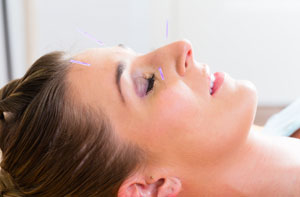
Ahead of your first treatment, you can discuss your symptoms with a consultant acupuncturist and you will be asked a couple of general questions with regards to your personal lifestyle and overall health. This session allows the acupuncture expert to formulate a treatment plan specifically designed for you personally. The suggested treatment procedures may be quite different even for patients suffering from similar symptoms. It's quite feasible that you'll know of somebody else in UK with pretty much identical symptoms to you who is undergoing an altogether different acupuncture treatment plan.
During treatment, slender needles are inserted into the body's meridian lines that correspond to the symptoms. These insertion points are sometimes in places that you would not immediately associate with the problem at hand. For example, a needle could be inserted into a meridian point on the hand of a patient to relieve a migraine headache. A large number of the more regularly targeted treatment points are found on the legs and lower limbs, which makes it recommended that you wear loosish fitting clothing or shorts to permit quick access to these places.
After treatment you are likely to feel lethargic and fatigued. It is suggested that you do not drive a car straight after treatment. Before continuing with your busy day, it's vital that you give your body a bit of time to relax and enable it to recover naturally. Considering this feeling of listlessness could possibly continue for a couple of hours, work plans might be impacted, so make allowances for this beforehand.
You will discover there are various styles of acupuncture available in UK, every one having its own objective and some serving as stand-alone procedures. Some of the best known techniques are: acupressure, tuina, fire needling, Chinese acupuncture, electro-acupuncture, trigger point acupuncture, moxibustion, cupping, sonopuncture, dry-needling acupuncture, Japanese acupuncture, auricular acupuncture and others.
Acupuncture - Does it Hurt?
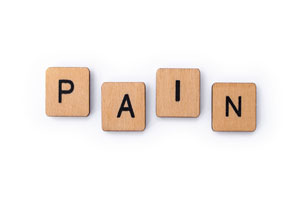
Despite the fact that acupuncture involves the insertion of needles, the process hardly ever hurts, aside from a sharp prick when work is needed on the fingers and toes. A pulsating or tingling may be felt when the acupuncture needle is inserted and then maybe a dull ache near the base of the needle after it has penetrated the skin of the client. The main reason for this is that the needles used are exceptionally thin being about one tenth the thickness of a standard hypodermic needle (the type used for giving injections), they range from about 0.12mm to 0.35mm in thickness. The experience of acupuncture is actually different for each and every patient and when all is said and done what's true for one will perhaps not be germane for another, but the general rule is .... no, acupuncture should not hurt at all.
Will Acupuncture Work For Me?
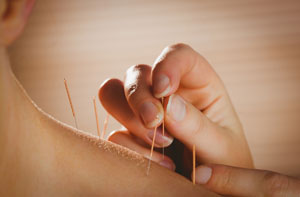
Now a regular question that people often ask is "does acupuncture work?", well I would guess that there's no definitive answer to that question given that it's rather subjective. A number of patients in UK may say "it truly is amazing and transformed my life", because it evidently had a positive effect on their complaint, whilst other patients will say "it doesn't work" given it failed to work for them. These disparities could naturally apply to many medical procedures and in particular to the alternative medicines, where there's typically considerable doubts in regards to the credibility and reliability of such procedures.
Acupuncture Points and Meridians
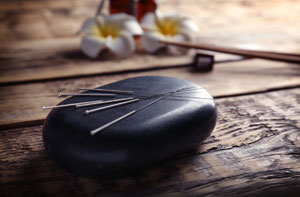
There are over four hundred acupuncture points within the body, according to Traditional Chinese Medicine, the majority of which are situated on the pathways (meridians) that transport the body's qi (life energy). Though there are roughly 20 or so meridians in all, for the purpose of this short post there are 12 primary meridians which are relating to the internal organs of the body, and these meridians are the triple energizer, the stomach, the lung, the pericardium, the spleen, the kidney, the liver, the large intestine, the heart, the gallbladder, the small intestine, the bladder, the others are classified as "extraordinary" meridians. Every single one of these acupuncture points are identified by the meridian (pathway) upon which they're found and their numbers correspond to the point position on that particular channel. These acupuncture points have been allocated some weird names and these ones - Cubit Marsh, Maximum Opening, Broken Sequence, Clasping the White, Palace of Heaven, Cloud Gate, Supreme Abyss, Lesser Shang, Channel Gutter, Fish Border, Middle Palace - are the 11 which are associated with the lungs, and are numbered LU-1 - LU-12, though not in that exact order.
Your local UK acupuncturist will help with: acupuncture for obesity, anxiety acupuncture treatments in UK, acupuncture for neck pain, acupuncture for varicose veins, acupuncture for weight loss, acupuncture for stress in UK, infertility acupuncture treatments in UK, acupuncture for depression in UK, gout acupuncture treatments in UK, acupuncture for addictions in UK, acupuncture for dogs, foot acupuncture therapy, acupuncture for knee pain, acupuncture for tennis elbow in UK, japanese acupuncture therapy, oriental acupuncture therapy in UK, acupuncture for allergies, acupuncture for muscle tension, acupuncture for epilepsy in UK, acupuncture for snoring, facial acupuncture treatments, acupuncture for arthritis, ear acupuncture treatments in UK, acupuncture for headaches, acupuncture for sciatica and other acupuncture related treatments.

